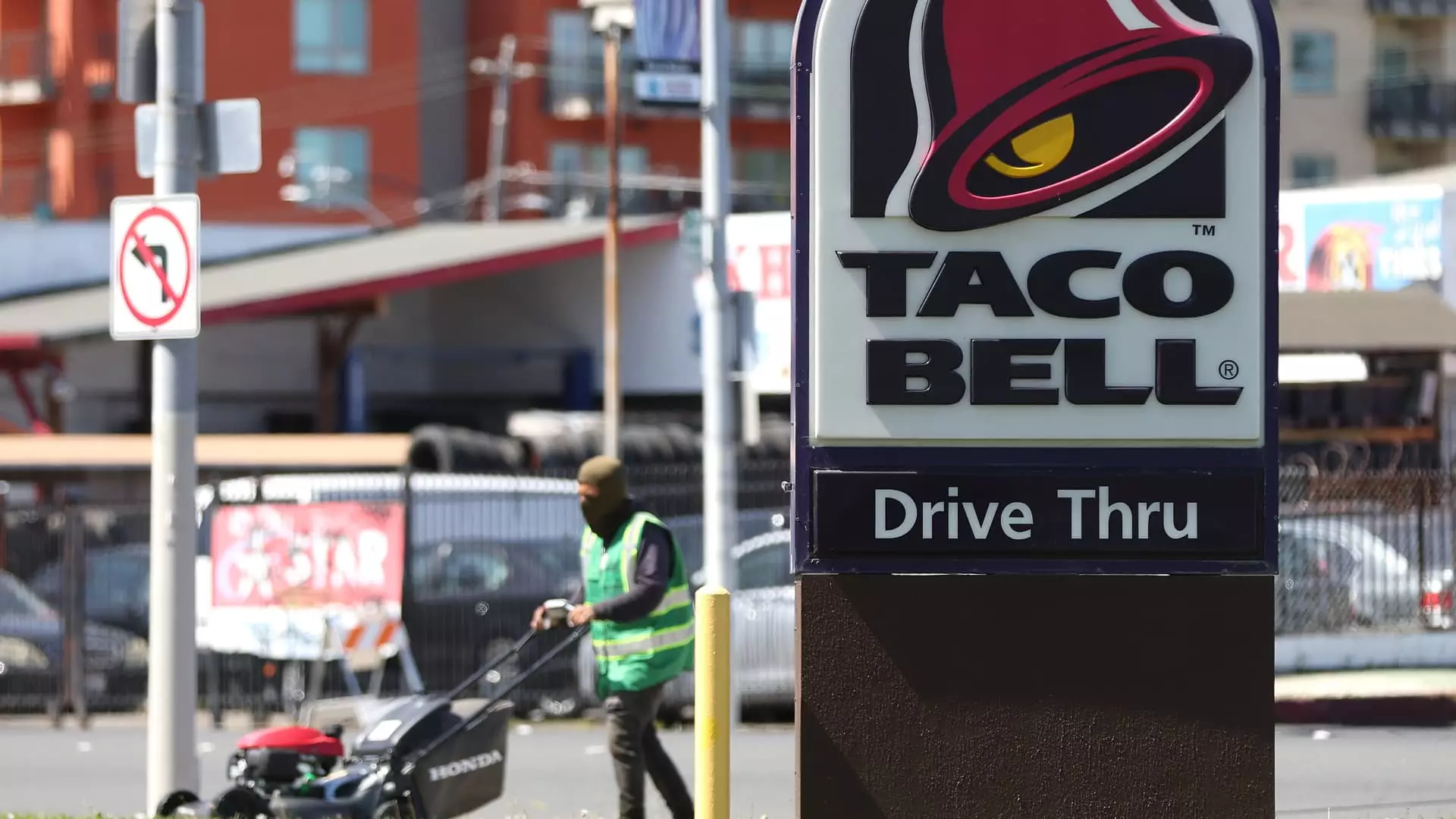Yum Brands recently reported a mixed quarter in which both Pizza Hut and KFC experienced declining same-store sales. Yum CEO David Gibbs attributed these challenges to the impact of the Middle East conflict and a more cost-conscious consumer base. These factors have created headwinds for the company, affecting its overall sales performance.
Financial Performance
Yum Brands reported second-quarter net income of $367 million, or $1.28 per share, which was down from $418 million, or $1.46 per share, compared to the previous year. Despite these declines, the company managed to exceed analysts’ expectations in terms of earnings per share, reporting $1.35 adjusted versus the expected $1.33. However, revenue fell short of expectations, coming in at $1.76 billion compared to the anticipated $1.8 billion.
Yum Brands witnessed a 1% decline in same-store sales during the quarter, with both Pizza Hut and KFC reporting same-store sales drops of 3%. The struggles were particularly pronounced in KFC’s U.S. restaurants, where same-store sales shrank by 5%. Although KFC’s international system sales improved in China, its overall international same-store sales fell by 3%. On the other hand, Pizza Hut saw declines in both its U.S. and international same-store sales, with decreases of 1% and 4%, respectively.
Success of Taco Bell
In contrast to Pizza Hut and KFC, Taco Bell experienced a 5% increase in same-store sales during the quarter. The chain’s focus on value and its strong presence in the U.S. market have helped it weather the challenges posed by consumer spending cutbacks. Taco Bell’s same-store sales growth was consistent across all income cohorts, highlighting its resilience in the face of economic uncertainties.
Plans for Artificial Intelligence
Yum Brands announced plans to expand the use of artificial intelligence technology across Taco Bell drive-thru lanes in hundreds of its U.S. restaurants by the end of the year. This initiative aims to enhance customer experience and drive efficiency in service delivery. By leveraging technology, Yum Brands seeks to stay competitive in a rapidly evolving industry landscape.
Approximately 200 of Yum’s restaurants across the Middle East, Malaysia, and Indonesia are temporarily closed due to the ongoing conflict. While some locations may reopen this month, there is a risk of permanent closure if the situation escalates. Chief Financial Officer Chris Turner emphasized the company’s willingness to adapt to changing circumstances and mitigate the impact of external challenges on its operations.
Yum Brands faces significant hurdles in the form of declining same-store sales, particularly for Pizza Hut and KFC. However, the company’s strategic focus on value offerings and technological innovation, as evident in Taco Bell’s success and the planned use of artificial intelligence, signals its commitment to driving growth and resilience in a challenging market environment.

